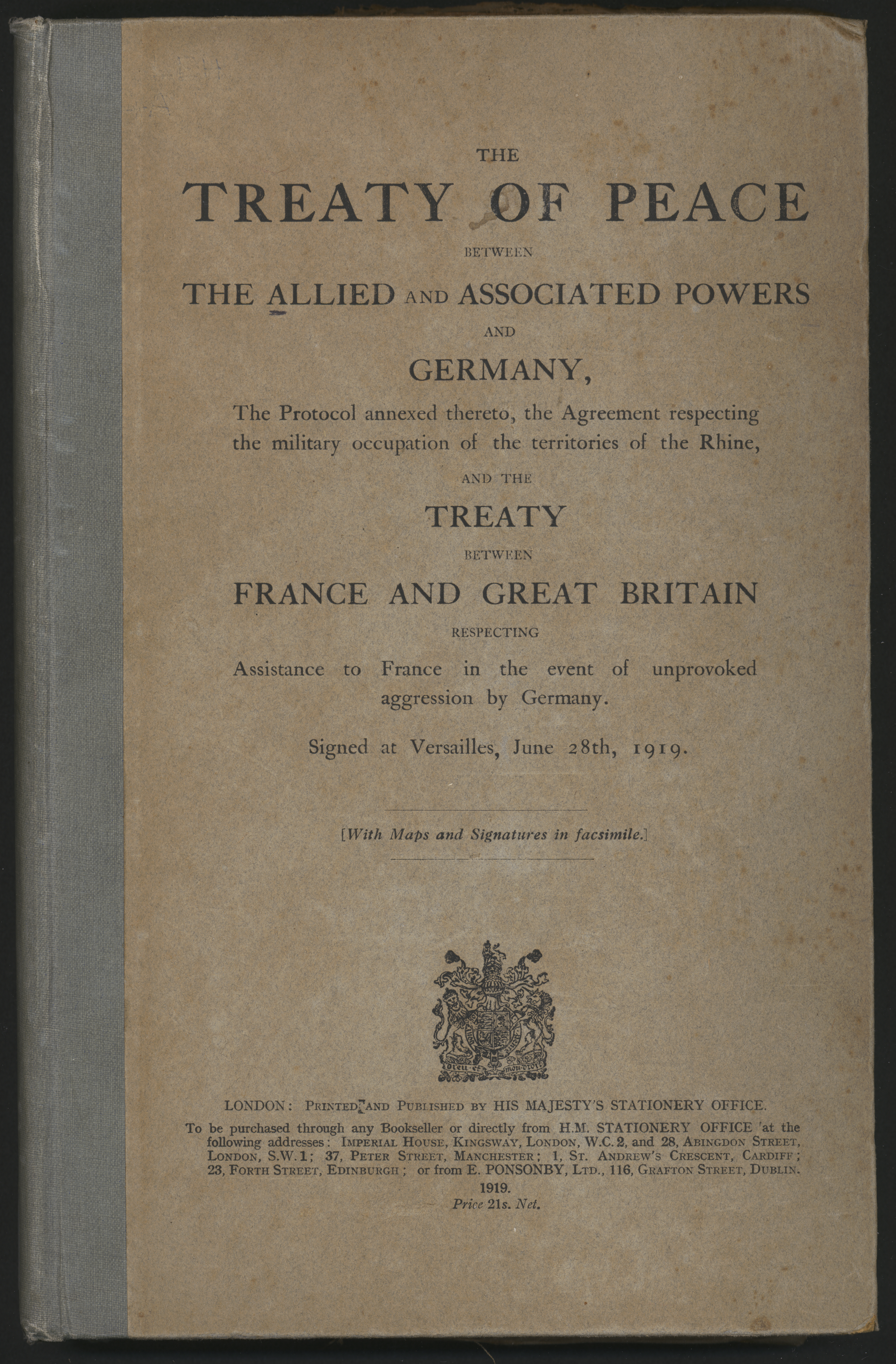|
Right Of Conquest
The right of conquest is a right of ownership to land after immediate possession via force of arms. It was recognized as a principle of international law that gradually deteriorated in significance until its proscription in the aftermath of World War II following the concept of crimes against peace introduced in the Nuremberg Principles. The interdiction of territorial conquests was confirmed and broadened by the UN Charter, which provides in article 2, paragraph 4, that "All Members shall refrain in their international relations from the threat or use of force against the territorial integrity or political independence of any state, or in any other manner inconsistent with the purposes of the United Nations." Although civil wars continued, wars between established states have been rare since 1945. Nations that have resorted to the use of force since the Charter came into effect have typically invoked self-defense or the right of collective defense. History and arguments Propo ... [...More Info...] [...Related Items...] OR: [Wikipedia] [Google] [Baidu] |
Right
Rights are law, legal, social, or ethics, ethical principles of Liberty, freedom or entitlement; that is, rights are the fundamental normative rules about what is allowed of people or owed to people according to some legal system, social convention, or ethical theory. Rights are of essential importance in such disciplines as law and ethics, especially theories of justice and deontology. Rights are fundamental to any civilization and the history of social conflicts is often bound up with attempts both to define and to redefine them. According to the ''Stanford Encyclopedia of Philosophy'', "rights structure the form of governments, the content of laws, and the shape of morality as it is currently perceived". Definitional issues One way to get an idea of the multiple understandings and senses of the term is to consider different ways it is used. Many diverse things are claimed as rights: There are likewise diverse possible ways to categorize rights, such as: There has been co ... [...More Info...] [...Related Items...] OR: [Wikipedia] [Google] [Baidu] |
Kellogg–Briand Pact
The Kellogg–Briand Pact or Pact of Paris – officially the General Treaty for Renunciation of War as an Instrument of National Policy – is a 1928 international agreement on peace in which signatory states promised not to use war to resolve "disputes or conflicts of whatever nature or of whatever origin they may be, which may arise among them". The pact was signed by Germany, France, and the United States on 27 August 1928, and by most other states soon after. Sponsored by France and the U.S., the Pact is named after its authors, United States Secretary of State Frank B. Kellogg and French foreign minister Aristide Briand. The pact was concluded outside the League of Nations and remains in effect. A common criticism is that the Kellogg–Briand Pact did not live up to all of its aims but has arguably had some success. It was unable to prevent the Second World War but was the base for trial and execution of Nazi leaders in 1946. Furthermore, declared wars became very ... [...More Info...] [...Related Items...] OR: [Wikipedia] [Google] [Baidu] |
Fait Accompli
Many words in the English vocabulary are of French origin, most coming from the Anglo-Norman spoken by the upper classes in England for several hundred years after the Norman Conquest, before the language settled into what became Modern English. English words of French origin, such as ''art'', ''competition'', ''force'', ''machine'', and ''table'' are pronounced according to English rules of phonology, rather than French, and are commonly used by English speakers without any consciousness of their French origin. This article, on the other hand, covers French words and phrases that have entered the English lexicon without ever losing their character as Gallicisms: they remain unmistakably "French" to an English speaker. They are most common in written English, where they retain French diacritics and are usually printed in italics. In spoken English, at least some attempt is generally made to pronounce them as they would sound in French; an entirely English pronunciation is re ... [...More Info...] [...Related Items...] OR: [Wikipedia] [Google] [Baidu] |
Discovery Doctrine
The discovery doctrine, or doctrine of discovery, is a disputed interpretation of international law during the Age of Discovery, introduced into United States municipal law by the US Supreme Court Justice John Marshall in ''Johnson v. M'Intosh'' (1823)''.'' In Marshall's formulation of the doctrine, discovery of territory previously unknown to Europeans gave the discovering nation title to that territory against all other European nations, and this title could be perfected by possession. A number of legal scholars have criticized Marshall's interpretation of the relevant international law. In recent decades, advocates for Indigenous rights have campaigned against the doctrine. Discovery in international law The means by which a state can acquire territory in international law are conquest, cession by agreement, occupation of land which belongs to no state (''terra nullius''), and prescription through the continuous exercise of sovereignty. Discovery of a territory creates a ... [...More Info...] [...Related Items...] OR: [Wikipedia] [Google] [Baidu] |
Debellatio
The term "debellatio" or "debellation" (Latin "defeating, or the act of conquering or subduing", literally, "warring (the enemy) down", from Latin ''bellum'' "war") designates the end of war caused by complete destruction of a hostile state. Israeli law-school professor Eyal Benvenisti defines it as "a situation in which a party to a conflict has been totally defeated in war, its national institutions have disintegrated, and none of its allies continue to challenge the enemy militarily on its behalf". Examples Carthage In some cases debellation ends with a complete dissolution and annexation of the defeated state into the victor's national territory, as happened at the end of the Third Punic War with the defeat of Carthage by Rome in the 2nd century BC. Nazi Germany The unconditional surrender of the Third Reich, in the strict sense only the German Armed Forces, at the end of World War II was at the time accepted by most authorities as a case of debellatio as: * There was a com ... [...More Info...] [...Related Items...] OR: [Wikipedia] [Google] [Baidu] |
Conquest (military)
Conquest is the act of military subjugation of an enemy by force of arms. Military history provides many examples of conquest: the Roman conquest of Britain, the Mauryan conquest of Afghanistan and of vast areas of the Indian subcontinent, the Spanish conquest of the Aztec Empire and various Muslim conquests, to mention just a few. The Norman conquest of England provides an example: it built on cultural ties, led to the subjugation of the Kingdom of England to Norman control and brought William the Conqueror to the English throne in 1066. Conquest may link in some ways with colonialism. England, for example, experienced phases and areas of Anglo-Saxon, Viking and Franco-Norman colonisation and conquest. Methods of conquest The Ottomans used a method of gradual, non-military conquest in which they established suzerainty over their neighbours and then displaced their ruling dynasties. This concept was first systematized by Halil İnalcık. Conquests of this sort did no ... [...More Info...] [...Related Items...] OR: [Wikipedia] [Google] [Baidu] |
Armistice
An armistice is a formal agreement of warring parties to stop fighting. It is not necessarily the end of a war, as it may constitute only a cessation of hostilities while an attempt is made to negotiate a lasting peace. It is derived from the Latin ''arma'', meaning "arms" (as in weapons) and ''-stitium'', meaning "a stopping". The United Nations Security Council often imposes, or tries to impose, cease-fire resolutions on parties in modern conflicts. Armistices are always negotiated between the parties themselves and are thus generally seen as more binding than non-mandatory UN cease-fire resolutions in modern international law. An armistice is a '' modus vivendi'' and is not the same as a peace treaty, which may take months or even years to agree on. The 1953 Korean War Armistice Agreement is a major example of an armistice which has not been followed by a peace treaty. An armistice is also different from a truce or ceasefire, which refer to a temporary cessation of hostiliti ... [...More Info...] [...Related Items...] OR: [Wikipedia] [Google] [Baidu] |
Korean War
, date = {{Ubl, 25 June 1950 – 27 July 1953 (''de facto'')({{Age in years, months, weeks and days, month1=6, day1=25, year1=1950, month2=7, day2=27, year2=1953), 25 June 1950 – present (''de jure'')({{Age in years, months, weeks and days, month1=6, day1=25, year1=1950) , place = Korean Peninsula, Yellow Sea, Sea of Japan, Korea Strait, China–North Korea border , territory = Korean Demilitarized Zone established * North Korea gains the city of Kaesong, but loses a net total of {{Convert, 1506, sqmi, km2, abbr=on, order=flip, including the city of Sokcho, to South Korea. , result = Inconclusive , combatant1 = {{Flag, First Republic of Korea, name=South Korea, 1949, size=23px , combatant1a = {{Plainlist , * {{Flagicon, United Nations, size=23px United Nations Command, United Nations{{Refn , name = nbUNforces , group = lower-alpha , On 9 July 1951 troop constituents were: US: 70.4%, ROK: 23.3% other UNC: 6.3%{{Cite ... [...More Info...] [...Related Items...] OR: [Wikipedia] [Google] [Baidu] |
Annexation
Annexation (Latin ''ad'', to, and ''nexus'', joining), in international law, is the forcible acquisition of one state's territory by another state, usually following military occupation of the territory. It is generally held to be an illegal act.: "Annexation means the forcible acquisition of territory by one State at the expense of another State. It is one of the principal modes of acquiring territory... in contrast to acquisition a) of terra nullius by means of effective occupation accompanied by the intent to appropriate the territory; b) by cession as a result of a treaty concluded between the States concerned (Treaties), or an act of adjudication, both followed by the effective peaceful transfer of territory; c) by means of prescription defined as the legitimization of a doubtful title to territory by passage of time and presumed acquiescence of the former sovereign; d) by accretion constituting the physical process by which new land is formed close to, or becomes attached to ... [...More Info...] [...Related Items...] OR: [Wikipedia] [Google] [Baidu] |
Peace Treaty
A peace treaty is an agreement between two or more hostile parties, usually countries or governments, which formally ends a state of war between the parties. It is different from an armistice, which is an agreement to stop hostilities; a surrender, in which an army agrees to give up arms; or a ceasefire or truce, in which the parties may agree to temporarily or permanently stop fighting. The art of negotiating a peace treaty in the modern era has been referred to by legal scholar Christine Bell as the , with a peace treaty potentially contributing to the legal framework governing the post conflict period, or . Elements of treaties The content of a treaty usually depends on the nature of the conflict being concluded. In the case of large conflicts between numerous parties, international treaty covering all issues or separate treaties signed between each party. There are many possible issues that may be included in a peace treaty such as the following: * Formal designation of ... [...More Info...] [...Related Items...] OR: [Wikipedia] [Google] [Baidu] |
Military Occupation
Military occupation, also known as belligerent occupation or simply occupation, is the effective military control by a ruling power over a territory that is outside of that power's sovereign territory.Eyāl Benveniśtî. The international law of occupation. Princeton University Press, 2004. , , p. 43 The territory is then known as the ''occupied'' territory and the ruling power the ''occupant''. Occupation is distinguished from annexation and colonialism by its intended temporary duration. While an occupant may set up a formal military government in the occupied territory to facilitate its administration, it is not a necessary precondition for occupation. The rules of occupation are delineated in various international agreements, primarily the Hague Convention of 1907, the Geneva Conventions of 1949, as well as established state practice. The relevant international conventions, the International Committee of the Red Cross (ICRC) Commentaries, and other treaties by military scho ... [...More Info...] [...Related Items...] OR: [Wikipedia] [Google] [Baidu] |
Laws Of War
The law of war is the component of international law that regulates the conditions for initiating war (''jus ad bellum'') and the conduct of warring parties (''jus in bello''). Laws of war define sovereignty and nationhood, states and territories, occupation, and other critical terms of law. Among other issues, modern laws of war address the declarations of war, acceptance of surrender and the treatment of prisoners of war; military necessity, along with ''distinction'' and ''proportionality''; and the prohibition of certain weapons that may cause unnecessary suffering. The ''law of war'' is considered distinct from other bodies of law—such as the domestic law of a particular belligerent to a conflict—which may provide additional legal limits to the conduct or justification of war. Early sources and history The first traces of a law of war come from the Babylonians. It is the Code of Hammurabi, king of Babylon, which, 2000 B.C., explains its laws imposing a code of con ... [...More Info...] [...Related Items...] OR: [Wikipedia] [Google] [Baidu] |





.jpg)


